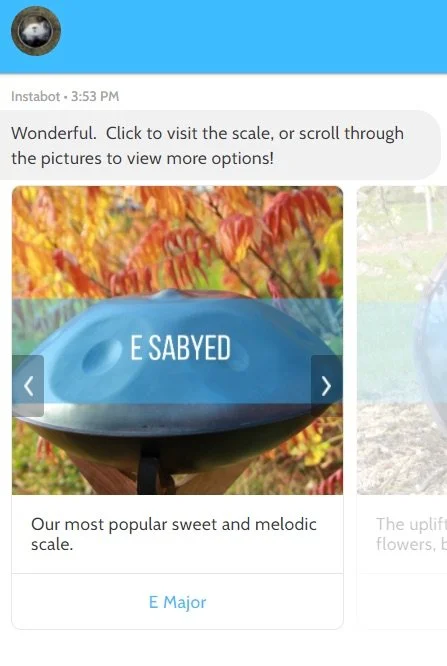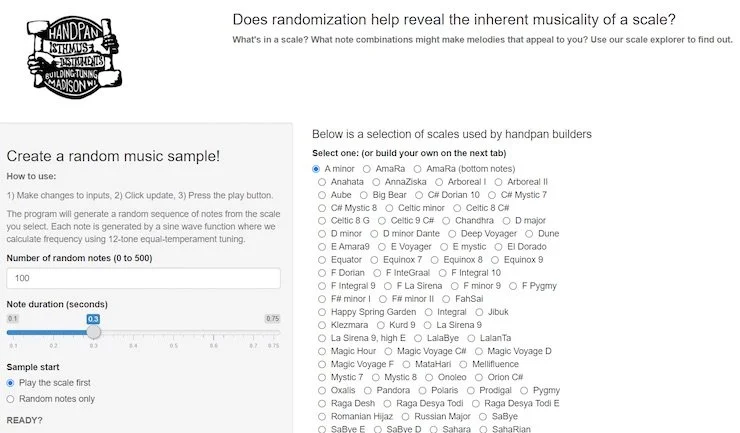How to Choose a Handpan? 3 Tools To Help
This blog is written for anyone who loves the sound of handpans and needs help choosing one. Many people who are drawn to the handpan have never played an instrument before. We think that’s amazing! One of the best things about handpans is that anyone can learn to play them. We’ve introduced hundreds of new players to the handpan. And through that experience we have developed three tools to make the process of choosing a handpan instrument easier. We want to help you find the perfect handpan scale! So check out the 3 free tools below. And please feel free to contact us at any time if you have any questions.
1)Question & ANswer
Answer a few key questions and find some great scale recommendations.
2) Handpan Scale Explorer
Define your musical tastes with our handpan Scale Explorer wheel.
3)Scale Randomizer
Here are our key questions broken down to help in find your perfect scale:
1) Do you prefer Uplifting (major scales), Mysterious (minor scales), or something Other (world or complex scales)?
If you are just starting to think about scales, deciding between a "Major feeling" or "Minor feeling" scale set can be very useful. We typically define a major feeling scale to be uplifting, happy or joyful. A minor feeling scale could be mysterious, mystical, melancholy or inquisitive. We specialize in building scales that are great for absolute beginners in music and first time handpan players that may have had musical experience in the past. For confident musicians looking for an interesting and complex sound, we also have a variety of scale types that will appeal to you.
The Major and Minor scales we’ve chosen to offer allow beginners and first-time players easy improvisation, expression or intuitiveness when playing, while also having an ability to play well with other common instruments. We believe you shouldn't need a musical background to enjoy these instruments! So if you've never played before, we first recommend selecting a Major or Minor scale, to allow for the most immediate personal enjoyment, no matter your experience level. These scales have an inherent musicality, built-in.
2) Do you prefer Low Bass (deep sounding) or Mid-range (higher sounding) instruments?
If you've been looking for a deep or low-voiced and bass sounding instrument, we've separated those options into their own Low Bass Scales category. Which has major, minor and advanced scales.
3) Do you have a musical background?
If you have a strong musical background and are looking for more challenge and inspiration in your songwriting, we recommend checking out the "Other, or World/Intermediate scales" as well as any beginner scales. If you are an experienced musician, or perhaps a more technically minded person, we recommend also checking out our other blog, "How to choose a handpan scale" There you will get to explore your own perception of the musicality of various handpan scales by reducing player bias. Depending on how you plan to use the handpan, we might have additional recommendations for you. So please feel free to contact us with any questions.
So no matter what sound or feeling appeals to you, you’ll find just the right amount of variety to choose from.
This process is made to help you know where to start when looking for a handpan scale that might be a great fit for you. Although what ultimate scales we build and offer may change in the future, the process and the questions we present here should help you understand how to make an informed choice for yourself. We hope this helps.
-The Isthmus Team
Our key questions with video:
Do you like Minor, Major, or more complex Scale types?
Demonstrated all with the same center note, find your scale type category: Minor, Major or Other
Which CEnter note do you like Best?
A breakdown of different registers: Low, Mid and High
Next steps:





